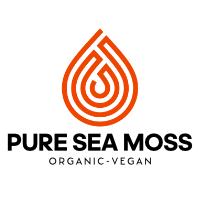
When you’re serious about training, recovery becomes just as important as the workouts themselves.
You might already be doing the basics: stretching, hydrating, and fuelling with the right nutrients. But what if a traditional superfood could naturally complement your recovery — without the need for synthetic supplements?
That’s where wildcrafted Sea Moss comes into the conversation.
While it’s not a miracle cure (nothing truly is), emerging research and traditional practices suggest Sea Moss may support key areas of post-exercise recovery. Here's how.
1. Mineral-Rich Recovery Support
One of Sea Moss’s greatest strengths is its incredible mineral content.
It contains over 90 naturally occurring minerals — including magnesium, potassium, calcium, and iron — many of which are essential for maintaining normal muscle and nerve function.
Why minerals matter post-workout:
-
Magnesium helps contribute to normal muscle relaxation, which may be beneficial after intense training sessions.
-
Potassium supports normal muscle contractions and electrolyte balance.
-
Calcium plays a role in muscle function and bone health.
Without sufficient minerals, muscles may feel more fatigued, and recovery can slow down.
By incorporating a natural source like Sea Moss into your routine, you may help your body replenish what’s lost during sweating and exertion — naturally.
2. Traditional Use for Inflammatory Support
After heavy training, the body naturally initiates an inflammatory response. This is normal and even necessary for adaptation and growth.
However, excessive or prolonged inflammation can sometimes lead to delayed recovery, joint discomfort, and stiffness.
Certain red algae species — including Sea Moss — have been traditionally used in various cultures to support the body's healthy inflammatory balance.
Emerging research notes:
-
Some studies suggest that bioactive compounds in red algae (like sulfated polysaccharides) may help regulate the body's normal inflammatory responses.*
-
However, human clinical trials on Sea Moss specifically are still limited and ongoing.
Thus, Sea Moss could serve as a valuable addition to a holistic recovery plan — particularly when combined with proper rest, hydration, and nutrition.
3. Natural Electrolyte Replacement
During intense exercise, we lose electrolytes through sweat.
If not properly replenished, this can impact muscle performance, hydration status, and even mental clarity post-training.
Sea Moss naturally contains:
-
Sodium
-
Potassium
-
Magnesium
-
Chloride
These electrolytes are critical for:
-
Maintaining fluid balance
-
Supporting muscle contractions
-
Preventing cramping
Unlike sports drinks loaded with sugar and artificial additives, Sea Moss offers a pure, plant-based electrolyte source that fits into clean eating and whole-food lifestyles.
4. Support for Energy Metabolism
Feeling chronically fatigued after training? It may not just be overtraining — it could relate to micronutrient gaps.
Sea Moss is a natural source of iodine, a mineral officially recognised to:
-
Support normal energy-yielding metabolism
-
Contribute to normal thyroid function
Why does that matter?
The thyroid gland regulates metabolism — including how efficiently the body produces and uses energy.
Maintaining healthy thyroid function is key for sustained vitality, recovery, and performance over time.
Adding Sea Moss to your recovery plan may help ensure your body is equipped with this vital nutrient — naturally and sustainably.
5. Antioxidant Protection Against Oxidative Stress
Intense exercise increases oxidative stress temporarily.
This is a natural byproduct of metabolism, but excessive oxidative stress can delay recovery and contribute to muscle soreness.
Sea Moss provides naturally occurring antioxidants, such as:
-
Flavonoids
-
Phenolic compounds
-
Vitamin C (in small amounts)
These compounds help neutralise free radicals and support the body's natural defense systems.
Incorporating antioxidant-rich foods like Sea Moss into a recovery-focused diet could be another small, meaningful way to nourish and protect your body.
6. Gut Health and Recovery Connection
Emerging research shows that gut health may significantly impact recovery and immune function.
A strong, balanced gut microbiome supports:
-
Nutrient absorption
-
Inflammation regulation
-
Immune resilience
Some early studies suggest that the prebiotic fibers found in seaweeds like Sea Moss may help promote healthy gut bacteria.*
While more human studies are needed, improving gut health is increasingly recognised as part of a holistic recovery plan — and Sea Moss could play a role.
Practical Tips: How to Use Sea Moss for Fitness Recovery
✔ Post-Workout Smoothies: Add 1–2 tablespoons of Wildcrafted Sea Moss Gel into your recovery smoothie with banana, protein powder, and almond milk.
✔ Hydration Boost: Mix Sea Moss into herbal teas or coconut water after training.
✔ Daily Routine: Take Sea Moss Gel daily (whether you train or not) to support ongoing mineral replenishment and energy balance.
For more detailed information about how to use sea moss Click here
Pro Tip:
Consistency matters more than quantity — it’s about building Sea Moss into your regular recovery habits for the best cumulative benefits.
Final Thoughts
Sea Moss isn’t a magic pill — but as part of a well-rounded recovery routine, it offers an impressive array of natural minerals, antioxidants, and traditional support factors.
Whether you're an endurance athlete, a weekend warrior, or simply looking to recover smarter after workouts, incorporating Wildcrafted Sea Moss could be a natural, sustainable tool to help you feel your best.
Explore our premium Wildcrafted Sea Moss Gel — sustainably sourced, nutrient-dense, and ready to fuel your journey to better recovery. Shop Now
Important Disclaimer:
This article is for informational purposes only and does not constitute medical advice. Pure Sea Moss UK products are not intended to diagnose, treat, cure, or prevent any disease. Individual results may vary. Always consult a healthcare provider before beginning any new dietary supplement.
